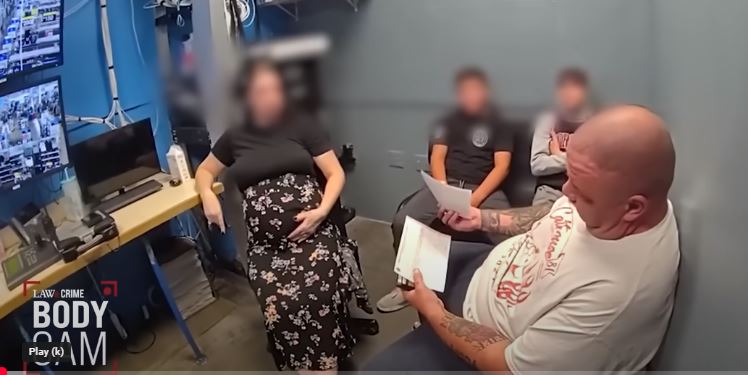IMPROVED WORKFORCE OPPORTUNITY WAGE ACT
Act 337 of 2018
An initiation of legislation to enact the Improved Workforce Opportunity Wage Act which would fix minimum wages for employees within this state; prohibit wage discrimination; provide for a wage deviation board; provide for the administration and enforcement of the act; prescribe penalties for the violation of the act; and supersede certain acts and parts of acts including 2014 PA 138.
History: 2018, Act 337, Eff. Mar. 29, 2019
Compiler’s Notes: Public Act 337 was proposed by initiative petition pursuant to Const. 1963, art 2, section 9. On September 5, 2018, the initiative petition was approved by an affirmative vote of the majority of the members of the Senate and an affirmative vote of the majority of the members of the House of Representatives, and filed with the Secretary of State on September 5, 2018.
| Document | Type | Description |
| Section 408.931 | Section | Short title. |
| Section 408.932 | Section | Definitions. |
| Section 408.933 | Section | Applicability of act. |
| Section 408.934 | Section | Minimum hourly wage rate. |
| Section 408.934a | Section | Compensation for workweek in excess of 40 hours; exceptions; rules; unpaid minimum wages; appropriation; compensatory time in lieu of monetary overtime compensation. |
| Section 408.934b | Section | Training hourly wage; employee less than 18 years of age; displacement prohibited; violation; civil fine. |
| Section 408.934c | Section | Rates for apprentices, learners, and persons with physical or mental disabilities; establishment. |
| Section 408.934d | Section | Minimum hourly wage; establishment; conditions; gratuities defined. |
| Section 408.935 | Section | Wage deviation board; appointment, qualifications, and terms of members; chairperson; commissioner as secretary; quorum; vote on recommendation or report; conducting business at public meeting; notice of meeting; availability of writings to public; compensation and expenses; obtaining data from employer; report to commissioner; reconsideration of rate. |
| Section 408.936 | Section | Rules. |
| Section 408.937 | Section | Statement of hours, wages, and deductions; inspection; posting of regulations and orders. |
| Section 408.938 | Section | Administration and enforcement of act; investigating and ascertaining wages; revealing facts or information. |
| Section 408.939 | Section | Violation of act by employer; civil action; fine. |
| Section 408.940 | Section | Applicability of act; payment in accordance with minimum wage and overtime compensation requirements. |
| Section 408.941 | Section | Discrimination against employee serving on or testifying to wage deviation board; violation. |
| Section 408.942 | Section | Discharge of employees within 10 weeks of employment; violation. |
| Section 408.943 | Section | Discrimination based on sex. |
| Section 408.944 | Section | Operation of massage establishment; violation. |
| Section 408.945 | Section | Inconsistent acts or parts of act; reference to workforce opportunity wage act. |
More Posts

When Can Police Take Your Dash Cam?
You work hard. Now get ready to work harder to prepare to give more.In Michigan, police can take your dashcam footage in specific situations, primarily when they believe it could serve as evidence in a criminal investigation. Michigan law permits officers to seize...

People who are going to need a Lawyer – November 12, 2024
People who are going to need a LawyerMan so drunk field sobriety tests were ‘too dangerous’ sentenced to life in prison for repeated DWI convictions‘Several terabytes’: Diddy prosecutors shed light on ‘voluminous’ discovery, including iCloud accounts and dozens of...

Cambridge Analytica data breach comes before court
Oral arguments in Facebook v. Amalgamated Bank will beginThe justices are set to review securities law as they hear arguments in a significant case linked to the 2015 data breach involving Cambridge Analytica and Facebook. The tech giant’s effort to fend off federal...

Search and Seizure – Consent or Plain view
The Fourth Amendment was established to protect individuals from unreasonable searches and seizures, yet there are exceptions.In Michigan, understanding the concepts of search and seizure, particularly regarding consent and plain view, is crucial for both law...

A drunk driving investigation, a car wreck and a blood draw
A Case Summary: People v. Blake Anthony-William BartonOn October 11, 2024, the Michigan Court of Appeals issued a decision in the case People of the State of Michigan v. Blake Anthony-William Barton. The case involved a drunk driving investigation following a car...

Police say they can tell if you are too high to drive
Police say they can tell if you are too high to drive. Critics call it ‘utter nonsense’Haley Butler-Moore sped up to pass a semi on the highway when she suddenly saw the police lights. She’d left Albuquerque hours earlier, heading to a Halloween party in Denver. Tired...

Cannabis – The Rise and Fall and Trail of Survivors Pile Up
Thieves make off with 1,000 pounds of premium flower in cannabis from a corporate grower in Michigan. Then, the GM sells off 650+ pounds to pay employees.The recent theft of over 1,000 pounds of marijuana from 305 Farms, a corporate cannabis grower in West Michigan,...

If you have an LLC you must comply or face fines and possible prison
You work hard. Now get ready to work harder to prepare to give more.If you own or are a member of an LLC.You have a deadline of January 1, 2025Call us we can take care of it for you. 248-357-2550The new Beneficial Ownership Reporting requirements for LLCs and other...

Compounding Charges Laws in Michigan
Understanding Compounding Charges Laws in Michigan Compounding charges refer to the illegal act of accepting or agreeing to accept a benefit in exchange for not prosecuting a crime. In Michigan, this is considered a serious offense, and the law specifically prohibits...

Harris unveils new proposals targeting black men with cannabis legalization
"Harris unveils new proposals targeting Black men as she looks to shore up Democratic coalition" CNNAmid the ongoing national issues, Vice President Kamala Harris introduced new initiatives on Monday aimed at addressing the needs of Black men as she works to bolster...











